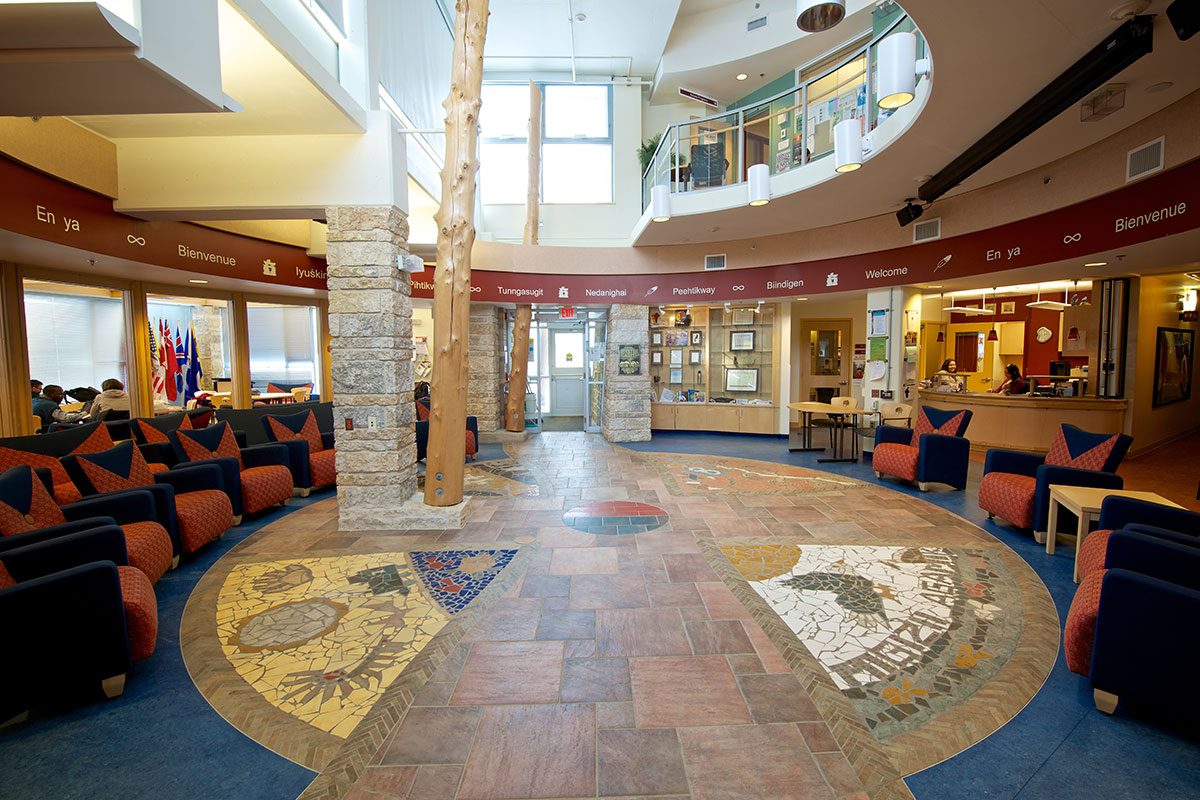
Inside Migizii Agamik – Bald Eagle Lodge.
President’s message on confronting anti-Indigenous racism collectively
At the Feb. 6, 2019 meeting of the Senate, President and Vice-Chancellor David T. Barnard made the following remarks during the Report from the President portion of the agenda. Further details about the first meeting referred to in his remarks may be found here:
Some of our Elders, the Vice-Presidents, members of the University’s leadership team, other staff members and I met with a group of Indigenous students at their request before the holiday break. We had a second meeting last week that included many of the same people, as well as some additional Indigenous members of our community. We listened as students talked about their experiences as Indigenous people at this University, both in their academic pursuits and more generally in the campus community.
Much of what we heard was deeply moving – and too much of it was very disturbing. It is clear that Indigenous students face racism here at the University of Manitoba. I was saddened to hear from them about the depth and extent of the racism they are experiencing on our campuses.
There is much that has been done here that is quite positive, representing the shared efforts of multiple generations of students, faculty and staff. For decades, our community has embraced a number of initiatives that are intended to support Indigenous students, celebrate Indigenous cultures, share Indigenous knowledges, welcome Indigenous scholars and help all of us seek and contribute to Reconciliation.
- The traditional graduation Powwow that celebrates the success of Indigenous students will have its 30th anniversary this year.
- Migizii Agamik – Bald Eagle Lodge – opened just over a decade ago as a space for Indigenous students.
- Indigenous faculty members have been part of the University for a long time, with significant increases in numbers in recent years.
- The Department of Native Studies long has been renowned for its excellent teaching and scholarly work in the area.
- A number of departments and faculties have shaped their curricula and their research to focus on the real issues that they could identify in their own areas.
- In several cases, pathways are in place to attract Indigenous students to succeed in different programs.
- The position of Vice-Provost (Indigenous Engagement) evolved from our attempts in the past decade to recognize the need for Indigenous leadership to be explicit in the University’s structure.
I am thankful for all of this and I would encourage all of us to recognize what many people have done. I am also thankful for the dedication of faculty, staff and students who have helped to shape the University of Manitoba’s agenda in the years that I have been here. There has been an eagerness to identify opportunities and to root out problems.
The meetings we have had recently with students, however, have served as a stark reminder that initiatives like what I have described are not enough – will never be enough – if we do not address the racism that clearly persists to this day.
This racism comes in at different forms. There can be overt acts – things we do, things we say – that are racist. There can also be systemic racism in that our structures, rules and processes can create and sustain barriers. We need to recognize and deal with both types. Sometimes we need help to recognize one or the other.
I call upon each person here, and more broadly in our community, to face racism together and to improve the situation for Indigenous students, faculty and staff.
Not only is it what we committed to do in our Strategic Plan, it is what is right for us to do.
As individuals and collectively we need to continue the good work that many in our community – and others who have been part of this community in the past – have done.
I encourage each of us to think creatively about what we can do to move forward together, to create a campus community that is safe and welcoming for all of its members.






